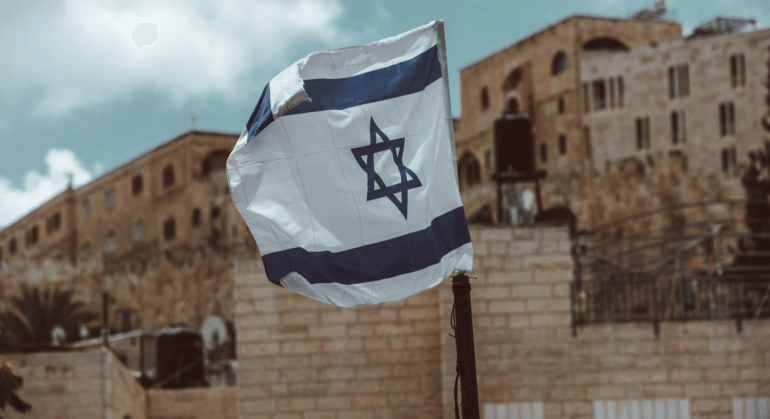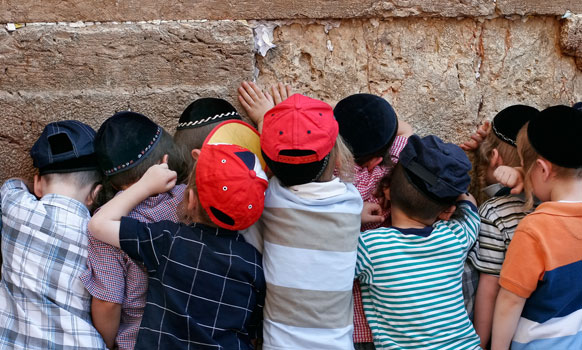
We Need To Call Out Antisemitism, Even When It Feels Uncomfortable
The Talmud tells us to do something strange on Purim: drink until you don’t know the difference between “blessed is Mordechai” and “cursed is Haman” (“ad d’lo yada”). This is a surprising statement. Judaism generally doesn’t promote getting drunk. And why would we want to be confused about not knowing the difference between blessing Mordechai (the hero of the Purim story) and cursing Haman (the villain of it)? Why do we need to drink in order to do this?
Perhaps the answer can be found in the modern day antisemitism landscape. There are certain types – Nazis, white supremacists, Kanye West – who are easy to call out. Speaking out against this type of antisemite is uncontroversial. It’s what my friend calls “antisemitism-lite.” Some groups and Jewish leaders stick to this safe approach. That’s not to say that this isn’t a concerning group. Kanye has a huge following, and his unabashed praising of Hitler encouraged a lot of antisemites, who had been in hiding, to feel comfortable to say the quiet part out loud. White supremacists also have a penchant for shooting up synagogues, which is pretty horrific. But there’s a danger in not venturing deeper into the other, less comfortable, Jew-hating dynamics. Because the problems you don’t speak about or deal with fester and metastasize.
What does going deeper look like? Discussing antisemitism that comes out of other minority communities and inclusion spaces. On its face, it feels wrong. How could historically persecuted people persecute others? How could inclusion spaces, set up to be diverse, marginalize Jews? And yet, here we are.
Americans Against Antisemitism found that only 3% of the people attacking Jews in New York City since 2018, were white. That feels really uncomfortable to say. It might even feel racist. But it’s not. Discussing your attacker and looking for a potential motives for the violence – in order to create meaningful change – is not wrong. In fact, it is the only way to build bridges and peace. But it’s a difficult conversation to step into.
A few years ago, I discovered a rather prevalent opinion that exists among some people in the progressive crowd: Jews kind of bring antisemitic attacks on themselves. Someone at our Meet a Jew in the City, Make A Friend pop up, and then many more people online, explained that it’s the Jews who choose to dress so Jewishly, and if they only dressed more American, they’d be safe.
Couple victim-blaming for an outfit choice, plus shaming the victim for discussing who his assailant is, and we don’t just have a case that sounds a whole lot like how sex abuse victims are treated by less evolved types. We have a case of how Jews are treated by the very people who would never treat sex abuse victims this way.
Attacks on Jews by Muslim extremists are similarly challenging to talk about. Muslims are a group that face their own bigotry in the form of Islamophobia. But calling out radical Muslims for beating up Jews in the streets of New York or LA is not Islamophobia. Calling out Muslims for encouraging a global Intifada or ridding Israel of Jews “by any means” necessary is not Islamophobia. And calling out terrorists for shooting innocent Jews in their cars or ramming a father and children on the street in Israel, is not Islamaphobia.
There are many bridges to build with the Muslim community. The relationship between Israel and the Gulf States and Israel and Morocco are examples of what that bridge-building can look like. Shared values, history, and ancestry are all ways to strengthen those bonds. But it must be done from a place of basic safety and shared dignity. There can be disagreements about politics. But political differences must be dealt with through negotiations and conversations, not through terror and incitement. Saying this out loud shouldn’t be controversial, but in many spaces it is.
I recently noticed that there are a whole lot less Jewish kids at Ivy League schools these days. It feels disturbingly reminiscent of the quotas that were in place in Ivy League schools only a few decades ago, back when Jews were considered too ethnic. Now Jews seem to be getting decreased in these spaces once again, but this time it’s because we’re too “white.”
A few months ago, I decided to research 1930’s Germany. If we keep saying “never again,” we should make sure we’re clear on what that looks like. I found some troubling similarities to those times and now, like the ostracizing of Jews becoming normalized as well as the removal of them in university and professional spaces. But Tablet magazine just published a piece delving much deeper into this topic called The Vanishing. It’s about how Jews are increasingly vanishing from the university and professional spaces we’ve been thriving in, ever since the last set of gatekeeping rules were undone.
The article is confirms what many Jews have been sensing for a little while. Jews are being excluded for being too successful. We did not gain our success through nefarious means. We just work hard, and if you’re a person of faith, perhaps you believe that we also have a blessing from above. This topic feels controversial to discuss, because maybe it sounds like you’re against diversity, if you don’t want Jews removed from diversity spaces. But that’s not true. You can believe in diversity and offering opportunities to other historically marginalized communities. You can also be simultaneously horrified that it’s coming at the expense of your people, when your people only recently got their own seat at the table.
It’s easy to praise the good. It is much less easy to call out the bad, especially when the bad is coming from places that are meant to be good. But the Talmud wants us to understand that cursing problematic ideas or behaviors or people is equivalent to praising great ones. We must have the moral courage to do so. But not everyone does. This is maybe why the Talmud tells us to get a little shiker on Purim. Loosen up, so you can say the hard truths.
Failing to speak up for our people could end in tragic and violent ways, as it has from time immemorial. Esther, the heroine of the Purim story was ready to risk it all to save her nation. We should be too.
If you found this content meaningful and want to help further our mission through our Keter, Makom, and Tikun branches, please consider becoming a Change Maker today.








3 comments
Sort by
So on Purim you may have 2 or 3 shots instead of 1or 2. Per halacha, it’s never ok to get wildly drunk.
Allison, you’ve got this one wrong. Esther’s superpower was that she rallied the Jews to do teshuva. Antisemitism is a wake-up call. Without it, most Jews would disappear, especially the ones on ivy league campuses. When we become the people Hashem wants us to be. the goyim will not only stop persecuting us–they will help us.
I don’t disagree that the teshuva part was necessary but that can’t happen if people aren’t courageous enough to verbalize controversial issues.